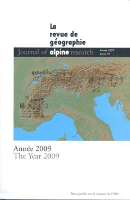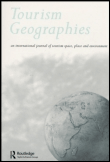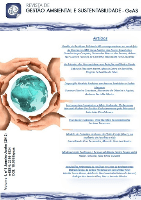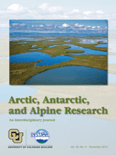
Revue de Geographie Alpine-Journal of Alpine Research
Scope & Guideline
Advancing Understanding of Alpine Environments and Cultures
Introduction
Aims and Scopes
- Climate Change Impacts:
Research exploring the effects of climate change on alpine ecosystems, including glacial retreat, permafrost warming, and alterations in biodiversity and natural resources. - Tourism and Recreation:
Studies addressing the evolution of tourism practices in mountain areas, including the impact of scientific tourism, wildlife observation, and the socio-economic implications of recreational activities. - Socio-Environmental Transitions:
Investigations into territorial conflicts, community adaptations, and the socio-political dimensions of transitions in mountain regions, particularly in response to environmental challenges. - Digital and Participatory Approaches:
Examination of the role of digital technologies and participatory science in managing mountain resources, fostering community engagement, and enhancing scientific understanding. - Cultural and Historical Perspectives:
Exploration of historical narratives, cultural practices, and local knowledge systems that shape the identity and development of alpine communities.
Trending and Emerging
- Climate Adaptation Strategies:
A growing body of research is focused on strategies for adapting to climate change impacts in mountain regions, including the management of natural resources and community resilience. - Digital Transformation in Mountain Research:
The integration of digital tools and methodologies in research practices is on the rise, particularly in participatory approaches that engage local communities in scientific inquiry. - Sustainable Tourism Development:
Emerging studies emphasize the need for sustainable tourism practices that balance economic development with environmental conservation, particularly in light of climate change. - Socio-Ecological Conflicts:
An increasing focus on the conflicts arising from socio-ecological changes in mountain territories, highlighting the complexities of land use, resource management, and community rights. - Biodiversity and Conservation Efforts:
Research is increasingly addressing the importance of biodiversity conservation in alpine ecosystems, particularly in the context of changing climatic conditions and human activities.
Declining or Waning
- Traditional Agricultural Practices:
Research focusing on conventional agricultural methods and their socio-economic viability in mountain areas has seen a decrease, potentially due to a shift towards more sustainable and innovative agricultural practices. - Conventional Energy Studies:
The exploration of traditional energy systems in the Alps, such as fossil fuels and non-renewable resources, appears to be waning in favor of discussions surrounding renewable energy and sustainability. - Historical Tourism Studies:
Papers analyzing the historical evolution of tourism in alpine regions, while still relevant, have diminished as new forms of tourism, like scientific tourism, gain prominence. - Static Land Use Studies:
Research focusing solely on static land use patterns without considering dynamic changes and adaptive strategies in response to environmental shifts is less frequently published.
Similar Journals

Quaestiones Geographicae
Connecting Researchers to the Heart of GeographyQuaestiones Geographicae, an esteemed open-access journal published by SCIENDO, serves as a vital platform for scholarly communication in the field of Earth and Planetary Sciences. Since its inception in 1979, the journal has been dedicated to promoting rigorous research and discourse in geography, encompassing a breadth of topics that reflect the dynamic nature of the discipline. With an impressive Impact Factor belonging to the Q3 quartile category, the journal actively contributes to the global scientific community's understanding of geographical phenomena. Its commitment to open-access publishing since 2010 ensures that groundbreaking research is accessible to a wider audience, facilitating collaboration and innovation. As part of its enduring legacy, Quaestiones Geographicae engages researchers, professionals, and students alike, inviting them to explore, share, and expand the boundaries of geographical knowledge.

Landscape and Ecological Engineering
Redefining environmental practices with cutting-edge research.Landscape and Ecological Engineering, published by SPRINGER JAPAN KK, is a vital journal that serves as a platform for the dissemination of innovative research and methodologies in the fields of landscape ecology and environmental engineering. With an ISSN of 1860-1871 and E-ISSN 1860-188X, this journal showcases articles that address the dynamic interplay between ecological processes and engineering designs in both natural and urban environments. As a significant publication since its inception in 2006, it is recognized in the Q2 quartile for Ecology and Nature and Landscape Conservation, alongside its placement in the Q3 quartile for Management, Monitoring, Policy, and Law, ensuring its relevance across multiple dimensions of environmental studies. The journal's presence in prominent databases, reflected in its Scopus rankings, highlights its commitment to high-quality, impactful research that guides conservation strategies and landscape management practices. Engaging with Landscape and Ecological Engineering provides researchers, professionals, and students with critical insights and developments, promoting sustainable solutions for ecological challenges. This journal is an essential resource for anyone seeking to enhance their understanding of ecological engineering approaches and landscape conservation efforts.

Journal of Mountain Science
Advancing Insights into Earth's Majestic Mountain EnvironmentsThe Journal of Mountain Science, published by SCIENCE PRESS, is a distinguished academic journal dedicated to advancing the understanding of mountain environments and their significance in various scientific domains. With an ISSN of 1672-6316 and an E-ISSN of 1993-0321, this journal has carved a niche in the field of Earth sciences, earning a commendable Q2 ranking in categories such as Earth-Surface Processes, Geography, Planning and Development, and Geology, as well as a Q3 ranking in Global and Planetary Change. Since its inception in 2007, the journal has been pivotal in fostering interdisciplinary research that addresses critical environmental issues, making it an essential resource for researchers, professionals, and students alike. While currently not offering open access, it provides valuable insights into areas including nature conservation and landscape management, with a focus on the unique challenges faced by mountainous regions. Located in Beijing, China, the Journal of Mountain Science continues to promote scholarly discourse that contributes to the sustainable development of mountain communities and ecosystems until 2024 and beyond.

TIJDSCHRIFT VOOR ECONOMISCHE EN SOCIALE GEOGRAFIE
Bridging Economics and Geography for a Better TomorrowTIJDSCHRIFT VOOR ECONOMISCHE EN SOCIALE GEOGRAFIE, an esteemed journal published by WILEY, provides a premier platform for the dissemination of cutting-edge research within the fields of economics and social geography. With an ISSN of 0040-747X and an E-ISSN of 1467-9663, this journal has established itself as a pivotal resource, exhibiting a remarkable Q1 ranking in both Economics and Econometrics as well as Geography, Planning and Development for 2023. Notably, it is positioned in the 95th percentile among 821 journals in its category of Social Sciences, and ranks 46th among 716 in Economics and Econometrics, underscoring its influential role in shaping academic discourse. The journal, which has been in publication since 1967 and is anticipated to run through 2024, invites contributions that explore the intricate interplay between economic phenomena and social geospatial dynamics. Researchers, professionals, and students are encouraged to engage with its findings, which are crucial for understanding contemporary socio-economic challenges and innovations on a global scale.

Tourism Geographies
Connecting Geography and Tourism for Global ImpactTourism Geographies is a leading academic journal published by ROUTLEDGE JOURNALS, TAYLOR & FRANCIS LTD, specializing in the diverse and dynamic field of tourism studies. With a Focus on the intersections of geography, planning, and development, this journal has established itself as an authoritative source for innovative research and insights since its inception in 1999. The journal not only holds a prestigious Q1 rank in both the categories of Geography, Planning and Development and Tourism, Leisure and Hospitality Management but also boasts remarkable rankings in Scopus, reflecting its impact and relevance in the academic community. With years of knowledge converging till 2024, Tourism Geographies provides critical perspectives and findings that contribute to the sustainable development of tourism practices worldwide. Researchers, professionals, and students engaged in tourism and related fields will find this journal to be an invaluable resource for advancing their understanding and shaping future policies within the industry.

Observatorio Medioambiental
Fostering Interdisciplinary Insights in Environmental ScienceObservatorio Medioambiental is a premier journal dedicated to advancing the understanding of environmental science and policy, published by UNIV COMPLUTENSE MADRID, SERVICIO PUBLICACIONES. With a strong commitment to scholarly excellence, this journal serves as a vital platform for researchers, professionals, and students interested in addressing contemporary environmental challenges through interdisciplinary studies. Although currently not listed as an Open Access journal, it maintains high academic standards, ensuring that published research contributes significantly to the field. The journal fosters the dissemination of knowledge regarding ecological conservation, sustainable development, and environmental management practices. By providing a rigorous peer-reviewed environment, Observatorio Medioambiental plays a crucial role in shaping informed and sustainable environmental policies and practices on both local and global scales.

Journal of Geology Geography and Geoecology
Empowering Scholars to Shape Our Environmental Future.The Journal of Geology Geography and Geoecology, published by OLES GONCHAR DNIPRO NATIONAL UNIVERSITY, is a premier open-access platform dedicated to advancing the fields of geology, geography, and geoecology. With its ISSN 2617-2909 and E-ISSN 2617-2119, this journal seeks to disseminate high-quality research, fostering collaboration and innovation among researchers, professionals, and students alike. The journal embraces a diverse range of topics, from earth sciences and ecological studies to geographical methodologies, providing a comprehensive perspective on how these disciplines interconnect. It aims to support impactful scholarly communication, thereby addressing some of the most pressing environmental challenges of our time. Authors and readers will find a committed editorial team that values rigorous peer-review processes and encourages the rapid sharing of scientific knowledge, all while maintaining a commitment to open access principles. This makes the Journal of Geology Geography and Geoecology an essential resource for anyone invested in understanding the complex dynamics of our planet.

Revista de Gestao Ambiental e Sustentabilidade-GeAS
Advancing Sustainable Solutions for a Greener TomorrowRevista de Gestao Ambiental e Sustentabilidade-GeAS, an esteemed open-access journal published by UNIV NOVE JULHO in Brazil, focuses on critical issues related to environmental management and sustainability, fostering interdisciplinary research that spans Geography, Urban Studies, and Environmental Science. With its commitment to accessibility since 2012, GeAS serves as a vital platform for researchers, professionals, and students to disseminate knowledge and innovative solutions in the realm of sustainability. Although it currently holds a Q4 ranking in Geography, Planning and Development and Management, Monitoring, Policy and Law, and Q3 in Urban Studies as of 2023, the journal aims to elevate its impact within these fields. It is uniquely positioned to contribute to the dialogue on environmental issues, policy implications, and urban development challenges in a rapidly evolving world. The journal's location in São Paulo further enriches its relevance and expertise in addressing both local and global environmental concerns.

ARCTIC ANTARCTIC AND ALPINE RESEARCH
Pioneering Research in Extreme EnvironmentsARCTIC ANTARCTIC AND ALPINE RESEARCH, published by Taylor & Francis Ltd, is a leading academic journal focused on the comprehensive study of polar and alpine environments, with an emphasis on the ecological, geological, and climatic processes unique to these regions. With an ISSN of 1523-0430 and E-ISSN 1938-4246, this open-access journal has been a vital resource for researchers and practitioners since it embraced open-access publishing in 2018, fostering a wider dissemination of knowledge. Recognized in the 2023 Scopus rankings as a Q2 journal in both Earth-Surface Processes and Ecology, Evolution, Behavior and Systematics, it also attains a Q3 ranking in Global and Planetary Change, highlighting its significant impact and relevance in these fields. The journal covers a span of converged years from 1996, providing a rich archive of research that meets the evolving needs of those engaged in environmental science. By addressing pressing issues such as climate change, biodiversity, and ecosystem dynamics in extreme environments, ARCTIC ANTARCTIC AND ALPINE RESEARCH serves as an indispensable platform for scholarly exchange and collaboration among scientists, policy-makers, and educators committed to advancing our understanding of these critical areas.

Geoadria
Connecting Researchers in Geography and DemographyGeoadria, an esteemed Open Access journal published by the University of Zadar in Croatia, has been at the forefront of disseminating valuable research since its inception in 1996. With a keen focus on atmospheric science, demography, earth-surface processes, and geography, this journal serves as a crucial platform for researchers and professionals aiming to explore the intricate relationships between these fields. Although it currently holds a Q4 quartile ranking in various categories, such as Atmospheric Science and Geography, its commitment to promoting innovative scholarly dialogue ensures its relevance and utility within the academic community. Geoadria is indexed in Scopus, with rankings that reflect its ongoing contribution to the social sciences and earth sciences, notably garnering attention in niche areas. With a dedication to open access since 1996, the journal stands as a testament to the University of Zadar's commitment to enhancing global knowledge. Researchers, professionals, and students interested in geography, demography, and environmental sciences will find Geoadria a vital resource for the latest empirical studies and theoretical discussions.